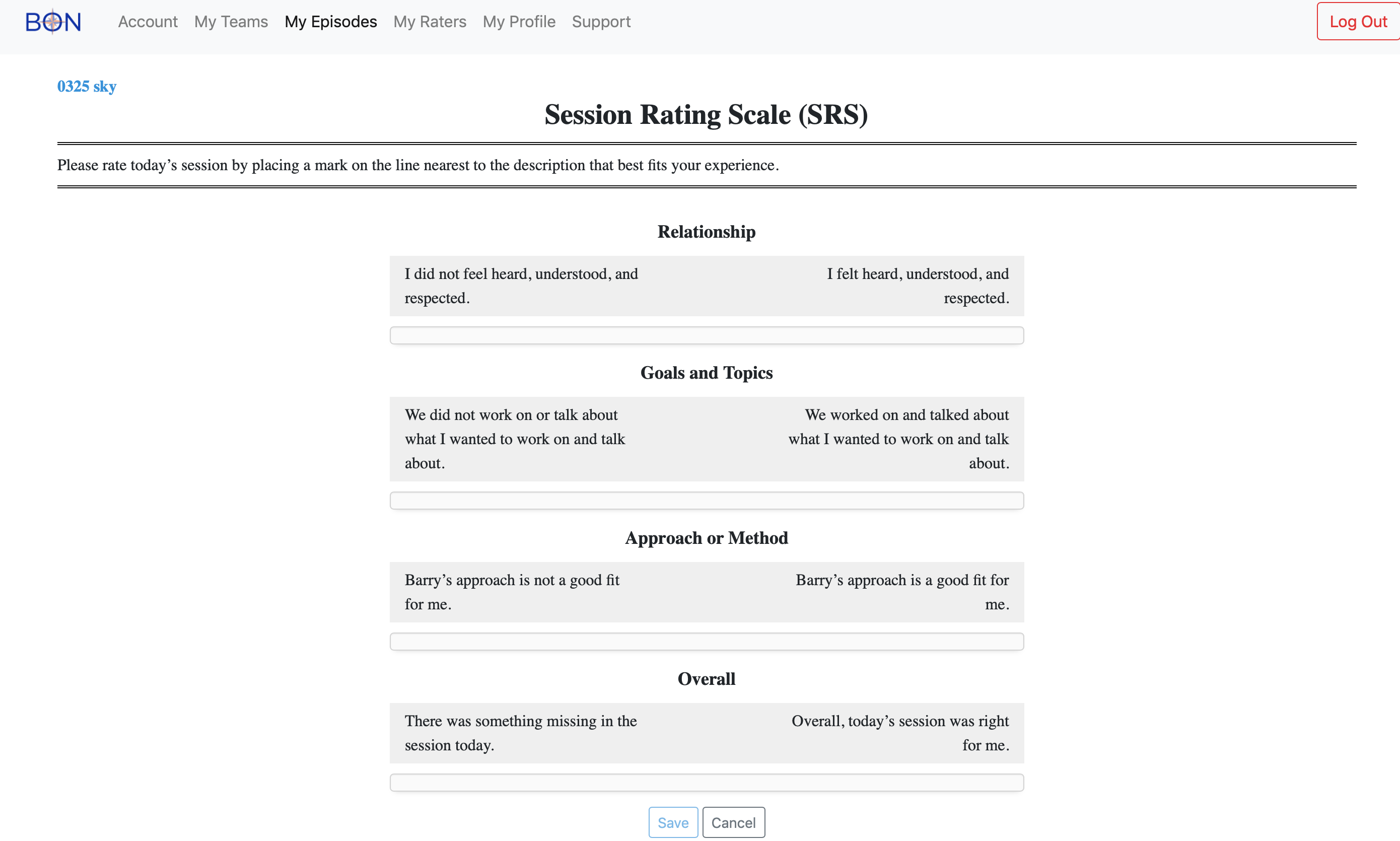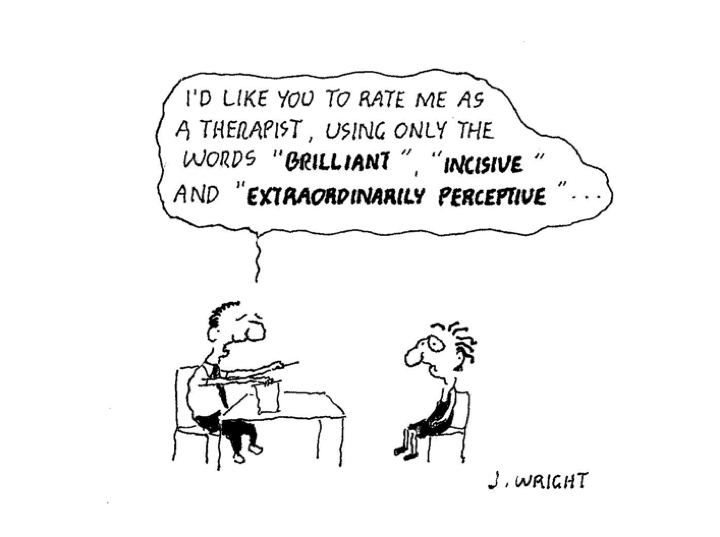Do We Really Care about the Therapeutic Alliance?

The therapeutic alliance is a robust predictor of ultimate outcome and is supported by over 1000 independent studies across models, modalities, and populations of clients. The alliance accounts for up to 50% of the variance of treatment outcome. Clinicians seem to universally profess its importance and sing the praises of attention to the relationship.
But do we really care about the alliance from the client’s perspective? After all, it’s the client’s rating of the alliance that predicts outcome, not the therapist’s. How do we really know if we have a good alliance—a strong relational bond and an agreement with the client about the goals of therapy and the plan to accomplish them?
The Session Rating Scale
The truth is that we don’t know…unless we ask. That is what the Session Rating Scale (SRS) and the Partners for Change Outcome Management System (PCOMS) are all about. PCOMS is the first feedback system to include the alliance and is still the only one that includes it in every session. The SRS is a four-item, psychometrically validated alliance scale designed for clinical practice. The use of the SRS continues the culture of client privilege started by the Outcome Rating Scale (ORS) and opens space for the client’s voice about the alliance. The SRS is given at the end of the meeting, typically the last five minutes, leaving enough time for discussing the client’s responses.

Checking in with clients about the alliance is important because clients drop out for two primary reasons: one is that the service is not helping (hence the importance of monitoring outcome), and the other is alliance problems—they are not engaged or turned on by the process. The most direct way to improve your effectiveness is simply to keep people engaged. Traditionally, clients give their evaluation of the alliance with their feet—they walk out and don’t come back.
The best thing about the SRS is that it helps you build a strong alliance. It encourages you to not leave the 1000 studies demonstrating the relationship between a strong alliance and positive outcome to chance.
The SRS is best presented in a relaxed way that is seamlessly integrated into your typical way of working. Like the ORS, it is designed to be a light-touch, checking-in process that exemplifies the culture of client privilege. Building a culture of feedback includes being comfortable in our own skin when asking for feedback, to really want it, to respond gracefully and do our best to accommodate the feedback, and finally our authentic desire for a frank discussion about their preferences regarding our work with them. You have to use your interpersonal skills here. Getting feedback on the SRS is a nuanced relational process that requires you to finesse a response from clients by making them feel comfortable about offering you feedback.
A concern often arises regarding the high scores on the SRS. Folks worry that clients do not rate the SRS honestly because they don’t want to hurt the practitioner’s feelings or because they are filling it out in the presence of the therapist. Or in other words, clients will inflate their scores because of social desirability and/or demand characteristics. It makes sense that some would have this concern given that the suggested cutoff is 36 out of 40 and most clients do tend to score the SRS very high.
These concerns are reasonable but come from misunderstandings of both the SRS and alliance measurement in general. First, there is no bad news on the SRS. It is not a measure of competence or ultimate ability to form good alliances. It is a gift from the client that allows you the opportunity to both alter the service and be a better counselor with that client. And of course, unless you really want negative feedback, you are very unlikely to get it. So if you are striving for feedback and not putting any value on positive scores—in fact quite the opposite—then social desirability and demand characteristics don’t make much sense. In that case, the desire to please, to be socially appropriate, would lead to a demand for lower scores, not inflated ones.
Don’t be this therapist!

Second, all alliance measures tend to be scored high by clients. This is not just a phenomenon of the SRS but runs across alliance scales in general. What does that mean? It could say that clients’ score alliance measures so high because of social desirability or demand characteristics. But the fact of the matter is that clients score alliance measures high regardless of whether you are present or not. Our preferred interpretation is that it is just plain hard to give critical interpersonal feedback.
Finally, high scores just plain make sense if you put yourself in the shoes of your client. How can they know that you won’t use their feedback against them? How can they know that you won’t somehow alter or limit service, that there will be a negative consequence? Self-protection is a valid response any way you look at it.
Next Blog: Discussing the client’s score on the SRS.
Download the SRS, free for individual use, or start a free trial of Better Outcomes Now.
